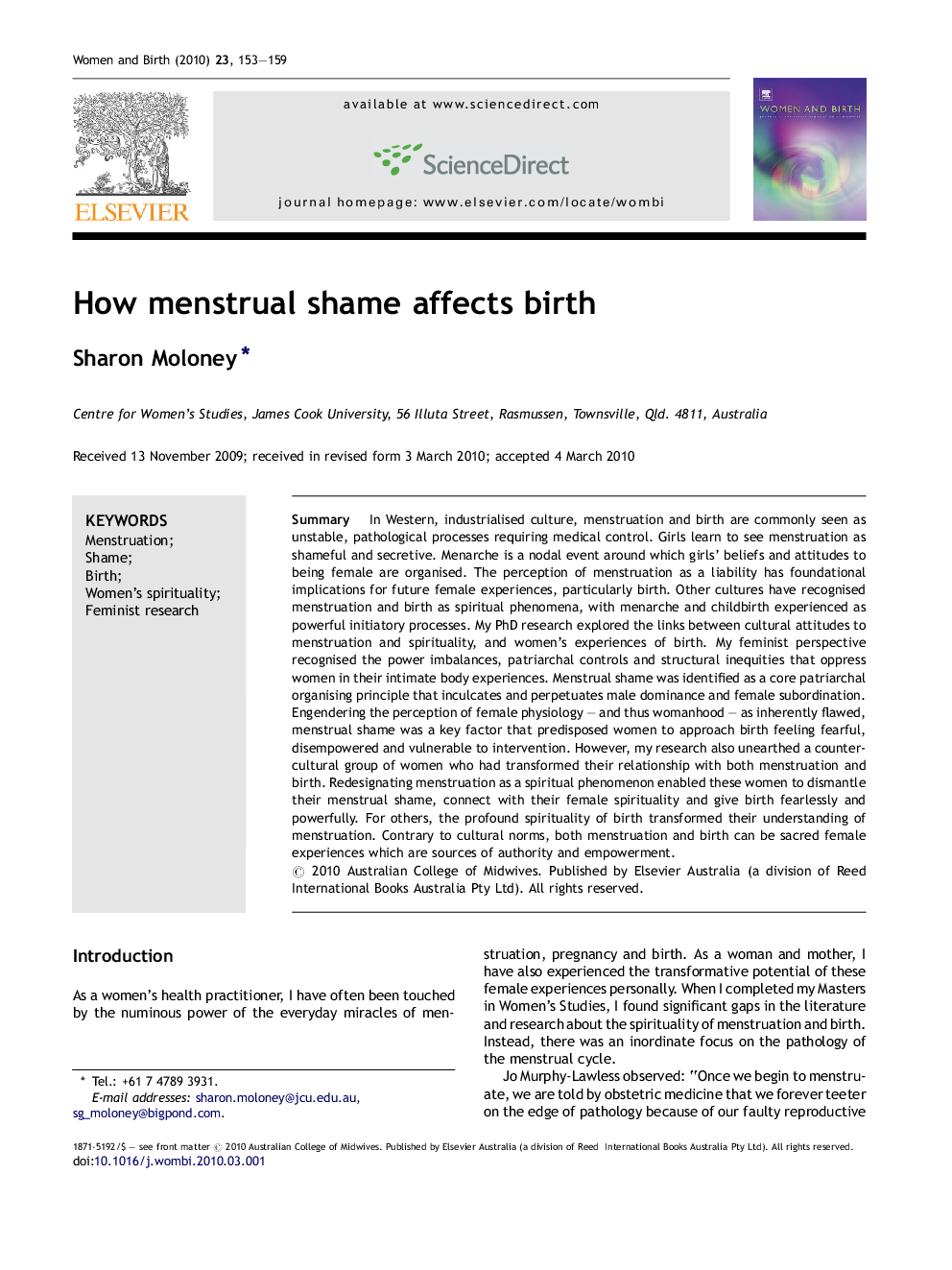| Article ID | Journal | Published Year | Pages | File Type |
|---|---|---|---|---|
| 2636322 | Women and Birth | 2010 | 7 Pages |
SummaryIn Western, industrialised culture, menstruation and birth are commonly seen as unstable, pathological processes requiring medical control. Girls learn to see menstruation as shameful and secretive. Menarche is a nodal event around which girls’ beliefs and attitudes to being female are organised. The perception of menstruation as a liability has foundational implications for future female experiences, particularly birth. Other cultures have recognised menstruation and birth as spiritual phenomena, with menarche and childbirth experienced as powerful initiatory processes. My PhD research explored the links between cultural attitudes to menstruation and spirituality, and women's experiences of birth. My feminist perspective recognised the power imbalances, patriarchal controls and structural inequities that oppress women in their intimate body experiences. Menstrual shame was identified as a core patriarchal organising principle that inculcates and perpetuates male dominance and female subordination. Engendering the perception of female physiology – and thus womanhood – as inherently flawed, menstrual shame was a key factor that predisposed women to approach birth feeling fearful, disempowered and vulnerable to intervention. However, my research also unearthed a counter-cultural group of women who had transformed their relationship with both menstruation and birth. Redesignating menstruation as a spiritual phenomenon enabled these women to dismantle their menstrual shame, connect with their female spirituality and give birth fearlessly and powerfully. For others, the profound spirituality of birth transformed their understanding of menstruation. Contrary to cultural norms, both menstruation and birth can be sacred female experiences which are sources of authority and empowerment.
